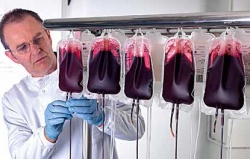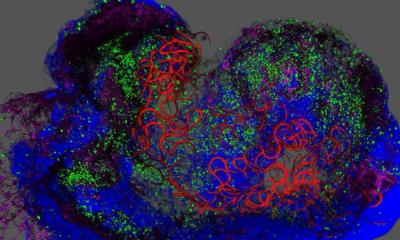Nine UK hospitals participate in a red cell immunohaematology electronic reporting pilot
Nine British hospitals are working with National Health Service (NHS) Blood and Transplant (NHSBT) on an electronic reporting pilot that may offer quicker access to patient test results and data.

When rolled out nationally, hospitals will no longer receive traditional printed reports and antibody cards from NHSBT. The implementation of a web browser will also make access to results more secure and, where appropriate, enable sharing of information and patient results between hospitals
The current pilot is for requests for Red Cell Immunohaematology (RCI) results; NHSBT also plans a similar project for Histocompatibility and Immunogenetics (H&I) in January 2013, a system to become available across England and North Wales early next year. NHSBT, the NHS Special Health Authority responsible for optimising the supply of blood, organs, and tissues, has been working closely with Sunquest and the pilot hospitals to implement the initiative known as Sp-ICE. Hospitals in the electronic reporting pilot: the Freeman, Newcastle; Manor, Walsall; Poole General; Russells Hall, Dudley; Southampton General; Royal Bournemouth; Birmingham University; Coventry University and North Staffordshire University.
‘These nine were chosen because they expressed an early interest in NHSBT developing and rolling out an electronic reporting system,’ explained Dr Carol Ash, who leads the project for NHSBT. They are also hospitals that send a large number of samples to NHSBT every year and early adopters of the NHSBT OBOS (Online Blood Ordering System), which allows them to order blood electronically. ‘For a number of years, users of our diagnostic services have been telling us they want more rapid access to patient results and their preference would be to have these results electronically,’ Dr Ash added.
‘So, the drive has come very much from the hospital users of our services.’ The project aims to deliver a reduced risk of transcription errors, results within one hour of authorisation, a full audit trail of report access, access to historic test results and the ability to search and display reports for a single patient or requesting location. NHSBT say early feedback indicates that hospitals would like the ability to view test results from other Trusts, to help with the care of patients who move between different healthcare providers. If all organisations taking part in the project give permission for all other organisations to view their results, NHSBT will be able to provide a national antibody database for NHSBT-generated results.
‘Sp-ICE has functionality that can control that level of access,’ she said. ‘Some hospitals have a pathology network where they may wish for their results to be visible only within that network but hospitals have seen the benefit of patient data being visible nationally.’ Security protocols are in place through the NHS Caldicott Guardian system to protect patient and serviceuser information. The ICE web browser was originally developed for use in single hospitals, NHSBT has worked with Sunquest to implement software changes so it will function in a national environment, with access provided via a secure N3 connection. The benefits to NHSBT and hospitals in terms of efficiency, speed, accuracy, patient safety and security are clear but, as Dr Ash added, ‘The real benefit is to patients because Sp-ICE is about rapid access to patient data.’ Ben Wilson, Sunquest Product Manager for ICE, said Sunquest already has the ICE system in more than 100 UK hospitals, as well as in the USA and the UAE.
‘Traditionally ICE has been installed in a single organisation, with patient results being delivered electronically to only users within that organisation. The NHSBT asked us if we could develop it to help them provide an electronic reporting system for their clients to save them sending over 150,000 paper results a year to 300 organisations.’ With improvements in functionality to enable ICE to work in a crossorganisational model, he said a large number of hospitals and tertiary care organisations can now access patient records in ICE - without compromising security, patient confidentiality or data issues.
Dr Carol Ash is Head of Strategic Delivery for Specialist Services at NHSBT with ultimate responsibility for delivering the project and is supported by a team that includes a project manager, scientists within RCI and H&I, IT, finance and customer service support.
05.11.2012





